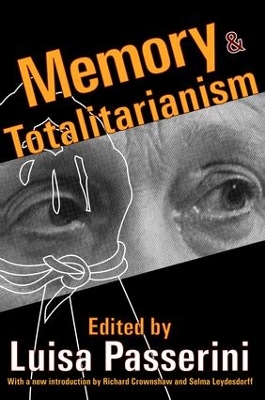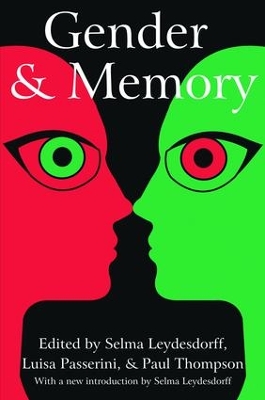Memory and Narrative
2 total works
Understanding Europe's past became an urgent matter with the events of August 1991 in Moscow, in the former Soviet Union. The invasion of Moscow's streets by Russian people rejecting an attempted coup d'etat was the culmination of a process that had been initiated years before and raised crucial questions: To what extent can these events be considered the end of an era stretching from World War I to the 1980s, when Europe experienced many forms of dictatorship? To what extent can the various forms of dictatorship Europe experienced in the twentieth century be grouped together? Can any sort of affinity be established between them?
The new introduction to the paperback edition of this volume in the Memory and Narrative series, Leydesdorff and Crownshaw underline the fundamental importance of the struggle for memory and its meaning. Memory and Totalitarianism explores the remembered experiences of individuals living under different totalitarian regimes, and examines the construction of memory in the aftermath of those regimes' collapse. It attempts to situate the findings of oral history in the context of contemporary memory. It wrestles with the most painful memories that Europeans have of this century at the end of the Cold War. These memories compare with oral history's research into such experiences as racist attitudes against blacks in the South, or the cultural and psychological effects of apartheid in South Africa, or the Aborigines' claim to their own history and to a new idea of history in Australia.
Totalitarianisms are products of the twentieth century that go far beyond earlier manifestations of absolutism and autocracy in their effort to completely control political, social, and intellectual life. They were made possible by modern industrialism and technology. Therefore the theme of the book expands to include many other experiences that relate to totalitarian mentalities.
Gender and Memory brings together contributions from around the world and from a range of disciplines--history and sociology, socio-linguistics and family therapy, literature--to create a volume that confronts all those concerned with autobiographical testimony and narrative, both spoken and written. The fundamental theme is the shaping of memory by gender. This paperback edition includes a new introduction by Selma Leydesdorff, coeditor of the Memory and Narrative series of which this volume is a part.
Are the different ways in which men and women are recalled in public and private memory and the differences in men's and women's own memories of similar experiences, simply reflections of unequal lives in gendered societies, or are they more deeply rooted? The sharply differentiated life experiences of men and women in most human societies, the widespread tendencies for men to dominate in the public sphere and for women's lives to focus on family and household, suggest that these experiences may be reflected in different qualities of memory.
The contributors maintain that memories are gendered, and that the gendering of memory makes a strong impact on the shaping of social spaces and expressive forms as the horizons of memory move from one generation to the next. They argue that in order to understand how memory becomes gendered, we need to travel through the realms of gendered experience and gendered language.

